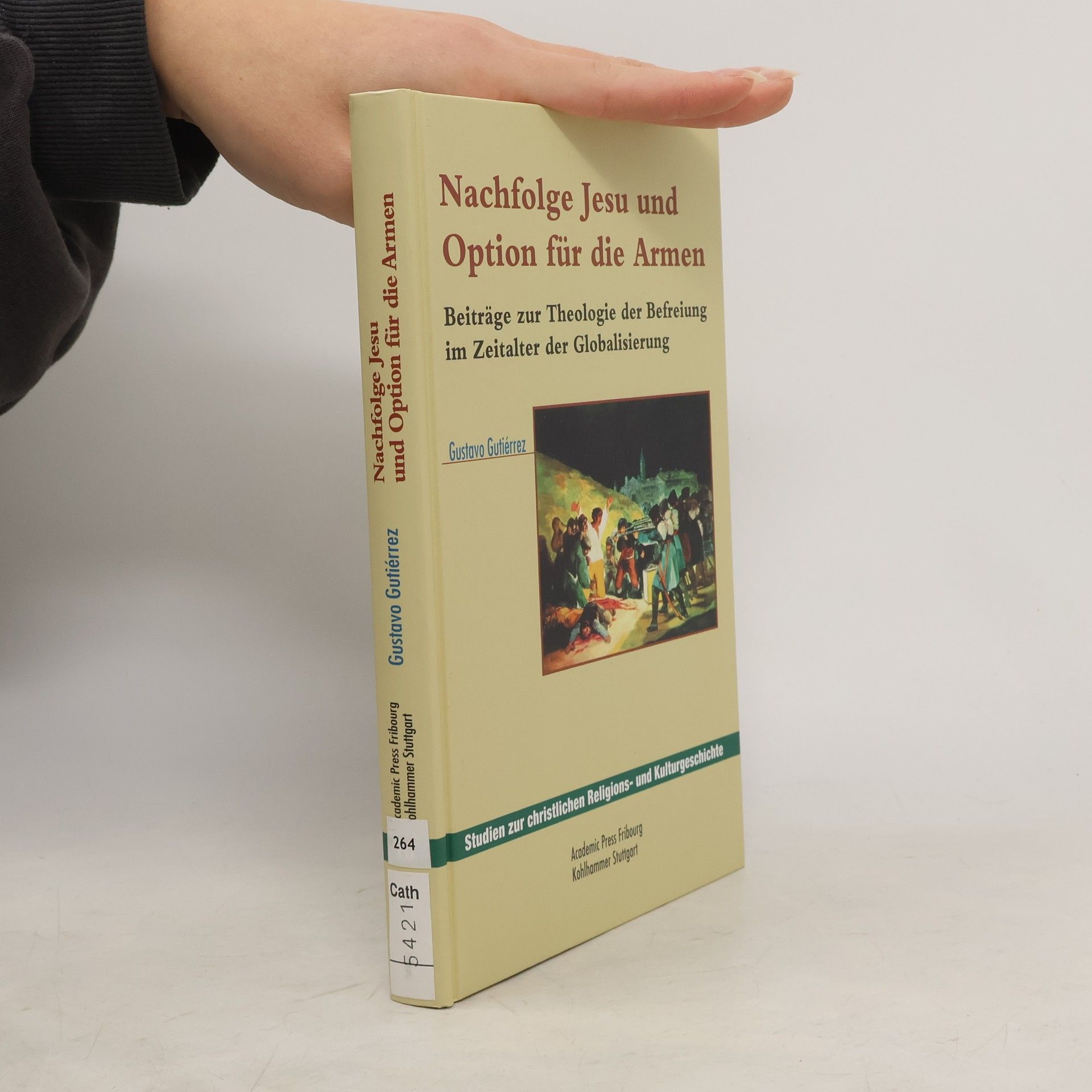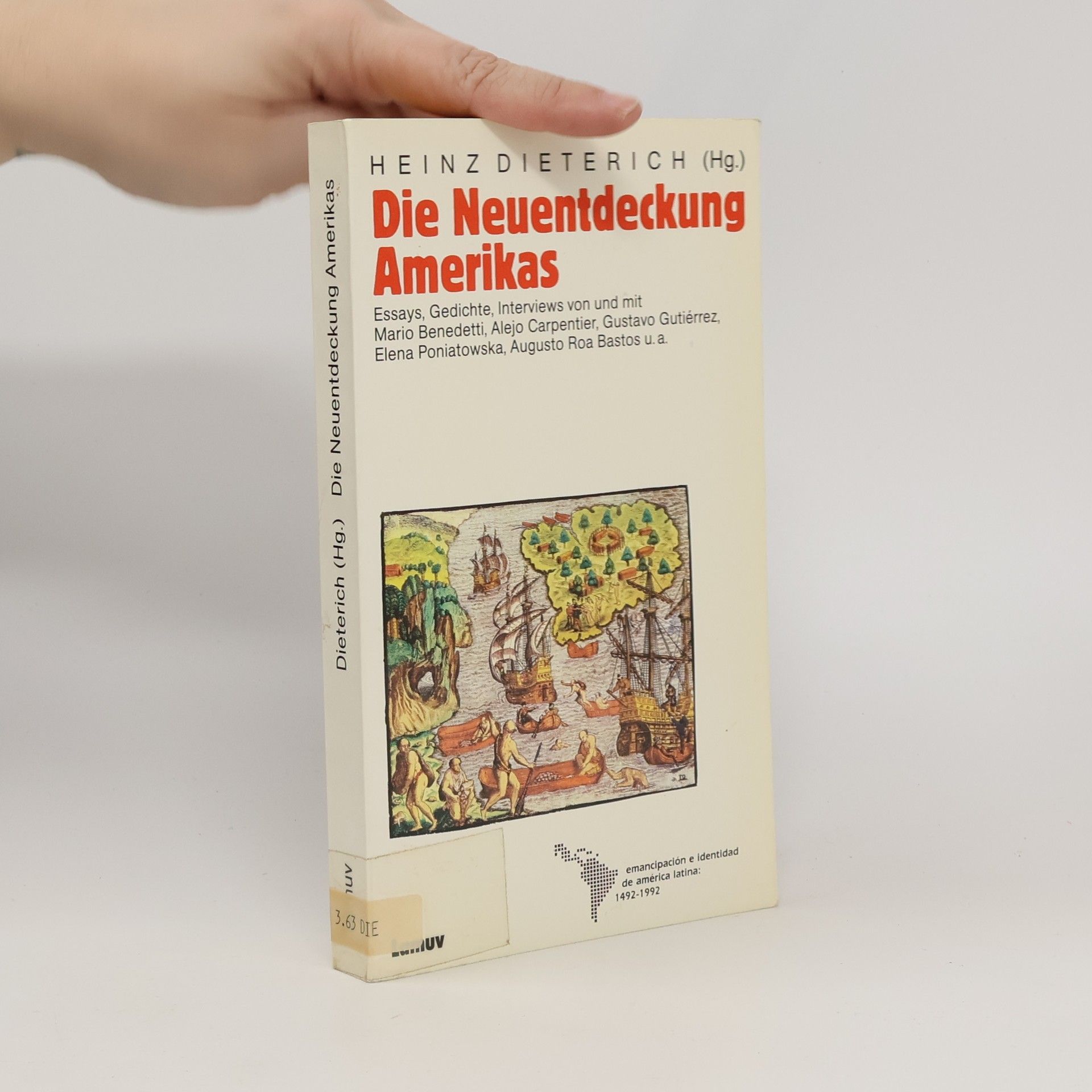Von Gott sprechen in Unrecht und Leid - Ijob
- 154 Seiten
- 6 Lesestunden
Gustavo Gutiérrez, der Begründer der Befreiungstheologie, untersucht die christliche Armut als Akt liebevoller Solidarität und als Protest gegen Elend. Sein Werk befasst sich mit drei Dimensionen der Befreiung: der politischen und sozialen Befreiung von Ungerechtigkeit, der Emanzipation der Unterdrückten zur freien Entfaltung und der persönlichen Befreiung von Sünde zur Wiederherstellung der Beziehung zu Gott. Gutiérrez' tiefgreifender Einfluss auf die Theologie hat bedeutende Diskussionen innerhalb der Kirche ausgelöst.






Aus dem Spanischen von Bruno Kern Herausgegeben von Franz Gmainer-Pranzl
Beiträge zur Theologie der Befreiung im Zeitalter der Globalisierung
The book features eight major essays that explore Gustavo Gutierrez's evolving theological insights, emphasizing the role of the poor in shaping history. As a leading figure in Latin American liberation theology, Gutierrez delves into the intersection of faith and social justice, highlighting the transformative power of marginalized communities. Through these essays, he articulates a vision of theology that is deeply rooted in the struggles and experiences of the impoverished, offering a profound critique of traditional theological perspectives.
This is the credo and seminal text of the movement which was later characterized as liberation theology. The book burst upon the scene in the early seventies, and was swiftly acknowledged as a pioneering and prophetic approach to theology which famously made an option for the poor, placing the exploited, the alienated, and the economically wretched at the centre of a programme where "the oppressed and maimed and blind and lame" were prioritized at the expense of those who either maintained the status quo or who abused the structures of power for their own ends. This powerful, compassionate and radical book attracted criticism for daring to mix politics and religion in so explicit a manner, but was also welcomed by those who had the capacity to see that its agenda was nothing more nor less than to give "good news to the poor", and redeem God's people from bondage.
In my judgment, the ecclesial and theological movement that began after the Second Vatican Council in Latin America under the name 'liberation theology," . . . is one of the most significant currents of Catholic theology in the 20th century."--Cardinal Gerhard Ludwig Muller For many years the theology of liberation, which emerged from Latin America in the 1970's, was viewed with suspicion in Rome. It was the subject of a critical notification from the Vatican Congregation for the Doctrine of the Faith, and many of its leading proponents were disciplined or silenced. Now, an historic exchange between Gustavo Gutierrez, author of the seminal work A Theology of Liberation, and Cardinal Muller, the current Prefect of the Congregation for the Doctrine of the Fiath, signals a new chapter in this ongoing dialogue. Cardinal Muller, a former student of Gutierrez who spent many summers working in Peru, writes with deep feeling and conviction about the contributions of liberation theology to church teaching--particularly in articulating the preferential option for the poor. In his contributions, Gutierrez lays out the essential ideas of liberation theolgoy, its ecclesail location, and its fresh enunciation of the gospel for our time.
Artículos reunidos; a 50 años de la Conferencia episcopal latinoamericana de Medellín
Recoge ocho artículos cuyo aporte son del P. Gustavo Gutiérrez, quien participó en la Conferencia de 1968 como asesor teológico. A raíz de la celebración por los 50 años de la Conferencia este volumen destaca los diversos momentos de la evolución del continente y de la Iglesia durante estos años resltando la fecundidad y continuidad de una reflexión teológica y pastoral de acuerdo a las exigencias actuales.